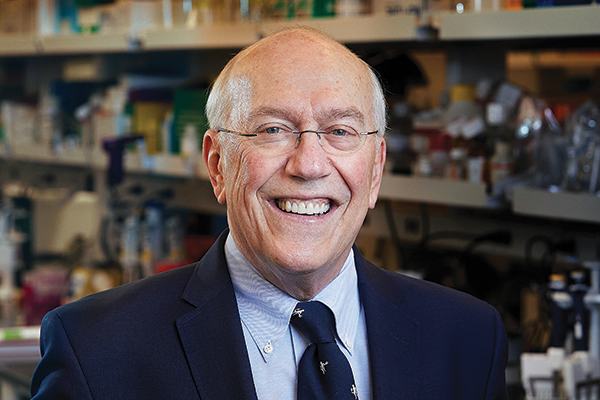Leadership Program Spurs Transformation in Lupus Care
Launched as a Duke Advanced Practice Provider Leadership Institute (APPLI) project, the lupus care model involves a patient care team that addresses patients’ medical and psychological needs to help improve their health.
Weinfurt Named Interim Chair of Population Health Sciences
Kevin P. Weinfurt, PhD, has been named interim chair of the Department of Population Health Sciences, effective July 17, 2023.
Duke’s Organ Transplant Program: Out With the Old, In With the New
By any reckoning, Duke is one of the top organ transplant centers in the world, a leader in patient care and outcomes, innovative research, and training. Duke ranks among the top five transplant centers by volume, with some of the shortest average wait times and best survival rates in the U.S. Duke researchers are pushing the frontiers of the possible, not only in the operating room but also in tackling issues of equity and social factors that play an outsized role in transplant access and outcomes.
‘Heart-in-a-Box’ Device Revolutionizes Organ Transport
Recently developed technologies that maintain donor organs in a functioning state, perfusing them with warm nutrient- and oxygen-rich blood, have dramatically expanded the length of time organs can be kept viable and thus the distance they can be transported. These improvements make more transplants possible — a critical advance in a field where more than 100,000 people are on transplant waiting lists in the U.S.
Black patients less likely to fill prescriptions for newer, safer urinary incontinence drugs
A new study in JAMA Network Open led by Northwestern Medicine and Duke University School of Medicine shows Black patients are less likely to fill prescriptions for newer, safer urinary incontinence drugs compared to white patients, potentially raising their risk for dementia.
Alumni Making a Difference: David Axelrod, MD’96, MBA’96
David Axelrod, professor of surgery and surgical director of kidney/pancreas and living donor transplant at the University of Iowa, explores the intersection of economics and medicine. Solid organ transplantation, he says, poses a unique set of complex challenges not only medically but also in terms of cost of care, organ allocation, and access to services.
Alumni Making a Difference: Roslyn “Roz” Bernstein Mannon, MD’85, HS’85-’90
Rosalyn “Roz” Bernstein Mannon, MD’85, HS’85-’90, professor of medicine, pathology, and microbiology and vice-chair for research in the Department of Medicine at the University of Nebraska, says more research is needed to understand how sex and gender affect transplant immunology, access, and outcomes. As past chair of Women in Transplantation, she has helped programs to fund such research internationally and to advocate for women in transplant around the world.
2023 Distinguished Alumna Award Mary Louise Markert, PhD’81, MD’82, HS’82-’84, ’84-’87
Mary Louise Markert, PhD’81, MD'82, HS’82-’84, ’84-’87, is professor emeritus of pediatrics in the Division of Allergy and Immunology and professor emeritus of immunology at Duke University School of Medicine.
2023 Distinguished Alumnus Award Kurt D. Newman, MD’78
In 2022, Kurt D. Newman, MD’78 retired as president and chief executive officer of Children’s National Hospital, after a nearly 40 year career there. During his 11 years as CEO, the hospital soared from No. 18 to No. 5 in the nation in U.S. News & World Report’s Best Children’s Hospital annual rankings, with neonatology maintaining the No. 1 spot for six consecutive years.
2023 William G. Anlyan Lifetime Achievement Award Robert J. Lefkowitz, MD
Robert J. Lefkowitz, MD is the Chancellor’s Distinguished Professor of Medicine and a professor of biochemistry, pathology, and chemistry at Duke University School of Medicine. He is also a basic research cardiologist at the Duke Heart Center and a member of the Duke Cancer Institute. He has been a Howard Hughes Medical Institute investigator since 1976 and has spent most of his 50-year research career at Duke.









